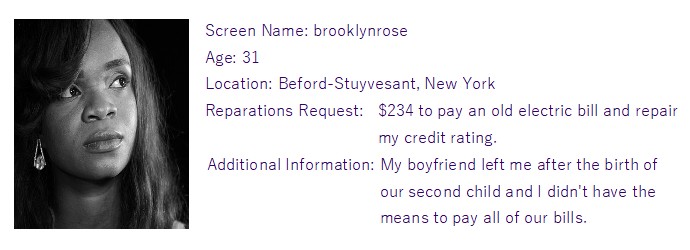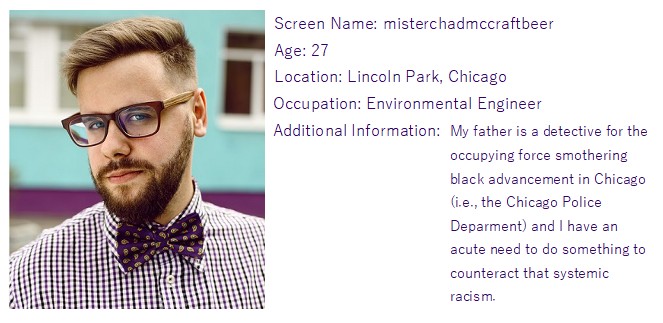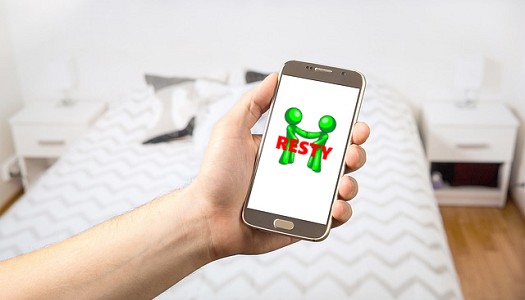This post may contain affiliate links. Please read our disclosure for more information.
Anyone familiar with this blog knows that I detest the Progressive definition of privilege. In a post that dare not speak its name, I challenged the notion that privilege equates to any unearned advantage a person comes to possess.
To me, privilege is when someone lawfully gets preferential treatment at the expense of someone else’s rights. For example, under affirmative action, black and Hispanic college applicants don’t have to meet the elevated academic standards established for white and Asian applicants. Colleges can legally reward an applicant for having black skin or a Hispanic surname. Being born in the United States, on the other hand, is just as much an unearned advantage as affirmative action is for black and Hispanic college applicants. But it doesn’t come at the expense of anyone’s rights. Nor does being born with great looks, brains, drive, or social capital trod upon anyone’s rights as well.
There’s a difference between an unearned advantage that derives from luck or impersonal forces and respects the rights of all (i.e., good fortune) and an unearned advantage that derives from the purposeful interference of a powerful institution and legally plunders the rights of some (i.e., privilege properly defined). Placing good fortune (i.e., ethical unearned advantages) under the rubric of “privilege” (i.e., unethical unearned advantages) muddies our language and muddies our sense of right and wrong.
If You Can’t Beat ‘Em, Make Money Off of ‘Em
Up until last week, I felt compelled to wage a lonely struggle against the Progressive definition of privilege. I don’t like the fake victims and fake villains it engenders, and I positively loathe the self-flagellation it mandates from “woke” villains. “Forgive me gender-fluid arbiters of social justice, for I have sinned. I was raised in a two-parent household, went to decent public schools, and rather than smoke pot, fornicate, and play video games, greedily hoarded opportunity by learning some worthwhile skills.”
But then it hit me. Why bother? I’m just a schmuck blogger with a thoroughly insignificant following. Nothing I write will do anything to weaken the Progressive hegemony over our language and culture. The word privilege will remain hopelessly corrupted, the legions of fake victims and fake villains will continue to grow, and the spectacle of guiltless people prostrating themselves before the “cool” people will remain an ongoing afront to the American creed. (We’re supposed to be the land of the free and the home of the brave, goddamnit. Not the land of the pathetic and the home of the groveling.) So what’s the point of tilting at windmills?
Since battling Progressives for the definition rights to privilege is an utter waste of time, I’ve decided to take a more practical approach to privilege and the dynamics set in motion by the corruption of that word.
First, I no longer care that “victims” and self-flaggies (i.e., fake villains wallowing in shame) are being played by Progressives. All that matters is that “victims” believe they’re being screwed over by malevolent forces and self-flaggies believe their success is the result of wanton “privilege.”
Second, there’s got to be a better way to address the pain that “victims” and self-flaggies obviously feel. State intervention in the form of affirmative action and expanding welfare isn’t making “victims” whole. Despite 50 years of affirmative action and expanding welfare, blacks and Hispanics still lag far behind whites on a number of key social metrics (e.g., income, net worth, college readiness, homeownership, infant mortality, etc.). And religious-like confessionals, while temporarily cathartic, don’t address the underlying “privilege” that self-flaggies find so disagreeable. No matter how many times self-flaggies prostrate themselves before the “cool” people, self-flaggies still have their “privilege,” and still have the ill-gotten wealth that their “privilege” has made possible.
What we have here, then, is a conundrum. We have millions of “victims” and self-flaggies, and the current means to bring them comfort—state intervention and self-flagellation—are woefully inadequate.
But here’s the good news. With any conundrum comes opportunity. Perhaps there’s a way to bring comfort to “victims” and self-flaggies and make a buck? Maybe it’s time for someone to invent the first-ever reparations app?
How a Reparations App Might Work
In order to grasp how a reparations app might work, we have to start with the definition of a sharing economy. According to Investopedia, a sharing economy is a…
Peer-to-peer based activity of acquiring, providing, or sharing access to goods and services that is often facilitated by a community-based on-line platform.
Well, I envision a reparations app to be a twist on the sharing economy. Such an app will introduce what I like to call the repairing economy—peer to peer transactions between “victims” and self-flaggies that endeavor to “repair” the financial woes of “victims” and the moral anguish of self-flaggies. And here’s the general outline of how a reparations app might work. We’ll call this app, Resty, a take-off on the word restitution.
- In Resty, you will be able to sign up as a VID (i.e., a victim in distress) or a POP (i.e., a person of privilege).
- No verification will be required to sign up as a POP.
- To sign up as a VID, however, your status as a VID must be verified. You have to prove, for instance, that you’re black and find yourself in impoverished circumstances.
- Once you become a verified VID, you may begin asking for reparations.
- Reparation requests could be for anything—from paying a doctor’s bill to paying the cost of SAT tutoring. Reparations requests could also entail either a one-time payment or a recurring payment.
- All transactions will be done via Paypal.
- Resty will charge POPs a 6 to 9 percent transaction fee on each reparation payment they make. So if you’re a POP and want to buy a $150 cell phone for a VID, you will be charged between $159 and 163.50 ($150 plus a $9 to $13.50 fee).
Mock-Up of a Hypothetical VID and POP
To help you further understand how Resty might work, I decided to do a mock-up of what a VID and POP might look like. Here we go.
Hypothetical VID

Hypothetical POP

The Important Benefits of My Hypothetical Reparations App
To the cynical eye, Resty appears to be little more than a glorified GoFundMe app. But Resty—as I envision it—will have features that clearly distinguish it from GoFundMe and other begging apps. Here they are.
Verified VIDs
Much like Airbnb requires potential renters to submit a picture ID, Resty will require potential VIDs to submit a picture ID and some type of proof of economic want—perhaps an EBT card or a Section-8 housing voucher.
Verified Reparations (Where Possible)
Resty will do all it can to avoid direct reparation payments from a POP to a VID. If a VID owes money to a hospital or a landlord, for instance, Resty will send that VID’s reparations directly to the hospital or landlord. There are occasions, of course, where sending reparations to third parties isn’t appropriate or feasible. When those occasions do arise, however, POPs will be alerted that their reparation payments will be going directly to the VID in question. If that makes them uncomfortable, they can choose to direct their reparation payments to another VID.
VIDs Can Get the Kind of Help the Government Can’t Provide
Suppose a VID wanted $500 to buy a lawnmower and weed whacker so he or she could start a landscaping side hustle. Or suppose a VID needed a few hundred dollars to buy clothes for an interview or repair his or her car. I don’t know of any government program that can address these small but crisis-inducing costs that all VIDs invariably contend with. Resty, on the other hand, will be able to address these costs.
Much Lower Overhead than the Government
A while back, in a post I wrote about homelessness, a commenter pointed me to a pilot program in Denver that sought to pay homeless people to pick up trash. “Fantastic,” I said to myself. “Someone is finally thinking outside the box.” But then I did a little research on Denver’s pilot program and was immediately crestfallen. The pilot programming was given $400,000 to spend but only a quarter of that budget was going to eventually reach the homeless in the form of wages. That’s right. Nearly 75 percent of the program’s cost was going to overhead. Self-flaggies won’t have that problem with Resty. Over 90 percent of all reparation payments will go to VIDs.
Self-Flaggies Can Actually Make a Meaningful Sacrifice that Actually Helps a VID
Other than his or her dignity, a self-flaggy sacrifices nothing by prostrating him- or herself before the “cool” people. Nor does the self-flaggy really sacrifice anything by promoting a bigger welfare state. First, the odds of getting more welfare in the age of mammoth public debt are small. Second, even if a new welfare program were created, the cost of that new entitlement would be dispersed across millions of taxpayers. The direct financial hit to our self-flaggy would be laughingly small. But a self-flaggy paying the emergency room bill of a VID would entail true sacrifice.
VIDs Who Abuse the Goodwill of the POP Community Would Face the Real Threat of Being Shunned by the POP Community
In Resty, POPs will be able to see the reparations history of any VID. What do you suppose would happen if a particular VID was seeking help with his or her rent and he or she already had several rent-help reparations in his or her reparations history? And what if no prior rent-help reparations were sent to landlords? All such reparation payments went directly to the VID in question. At some point, potential POPs might smell a rat and not deem this particular VID worthy of their reparation payments.
My Reparations App Is a Great Tool for Recognizing Love Legalities
Our country does a great job of broadcasting, condemning, and tallying hate crimes against people from supposedly marginalized groups (i.e., blacks, Hispanics, gays, women, illegal immigrants, etc.). It does a positively miserable job, however, of broadcasting, cheering, and tallying the love legalities directed toward people from supposedly marginalized groups. Resty will begin to correct this oversight. Once it is up and running, it will be able to provide quarterly reports on the number of VIDs helped and the dollar amount of POP-provided reparations.
Quick aside: Just in case you can’t surmise what a love legality is, here’s the definition. A love legality is the opposite of a hate crime. It’s when a person from one group goes out of his or her way to help a person from another group. Here’s a great example of a love legality.
Final Thoughts
Okay, groovy freedomist, that’s all I got. What say you? Is my idea of a reparations app a great way to kickstart the repairing economy and make money? Or is my idea of a reparations app a cynical ploy that should be tossed down the memory hole with extreme prejudice? Let me know what you think when you get a chance. Cheers.

Great article. There is already a place like that. Just take a look around.
https://www.modestneeds.org/
Katie recently posted…401 K Plans | What Corporations Don’t Want You To Do
Thanks for the link, Katie. Couldn’t agree more. In addition to being a kind of reparations app, Modest Needs also helps prove my theory that systemic kindness and love legalities far outweigh systemic racism and hate crimes.
Needless to say that you tackled my dev brain with this app idea. I see no problem with this other than the validation of VIDs. It would be hard to do properly. Coincidentally I was thinking about a similar app to fix financial errors, but it feared lack of the motivation on the POP-like side to participate and I was not sure about the eligibility of the VID side either. Interesting idea, though.
Maybe my approach is wrong but I exercise strategic ignorance on this field. I don’t really care what is the color of your skin, your religion, or sexual orientation. It is your thing and your problem. For me what is important is what kind of human being you are. I don’t feel the urge to label people (especially these days when the meaning of half of the labels are unknown to me), I try to see the world as is, not good, not bad, it is just like as it is.
Labels and systems are all human created and could be changed in the blink of an eye. One government today prefers white people, tomorrow people of color. Times change, our only choice is to deal with the current circumstances and try to bend them and improve it the best as we can. Or choose another playground and vote with your feet.
I have my unpopular ideas about this whole fight the “victims” try to fight. On one side I understand that they are unhappy about a condition and want to change it. The problem is that often these people over aggregate the problem and try to solve it with aggression or force which is as bad as the thing they are fighting against itself. I think it is a single law of action-reaction. Be just any common random human being and share the info with me that you are gay in a conversation and I will not bat an eye, I am ok with that. Start jumping around in rainbow-colored thong on the street shouting at me that you are gay and I will suddenly feel the urge to punch you in the face despite I have no problem with that statement.
Oh, and yes, I am insignificant also, just as any other human being on this planet

[HCF] recently posted…Financial Independence Europe Podcast Appearance
You don’t like it when half-naked people get in your face and tell you what to think? Haha! I’m with you, Mr. HCF. It seems the old victims are now the new bullies. But that’s grist for another post. My reparations app is mainly a joke. I just can’t take the self-flagellation so many white people now engage in. It’s freakin’ nauseating. And I know I can’t change it. Our teachers, entertainers, and journalists have created millions of psychologically damaged people. Very sad. On the bright side, though, there’s definitely money to be made on this national psychosis. Anyone who comes up with a functional reparations app will make a lot of money. Thanks for stopping by, Mr. HCF. Always a pleasure hearing from you. Cheers.
First off, I took offense at you calling us your “insignificant following”. While our voices may not be earth shattering, we do make a difference every time we respectfully discuss issues and look for answers. As for your app, I have no problem with a voluntary system where alleged victims can receive compensation from someone who feels they owe them something. The problem is that too many people will say they are victims simply because they want to grab the freebies. The time for slavery reparations, for example, was when actual former slaves, and perhaps their children and grandchildren, were alive and their victimhood could be documented. How many of today’s African Americans actually have slave ancestors here? Some do but others don’t. How many of the rest of us had ancestors that owned slaves? Those that don’t shouldn’t be expected to pay for those that did. Then we’d have to see who was deprived of real opportunity versus those that simply sat back and expected things to come their way. Someone who took advantage of affirmative action or other opportunities and succeeded shows that others who didn’t should not be rewarded for their failures and instead take responsibility for themselves. Same goes for immigrants who came here, learned the language and worked their way up to be a success versus those here for years that still can’t speak English or hold a decent paying job. A voluntary system wouldn’t care but to be fair any taxpayer funded reparations program would have to determine who is a true victim. I just don’t see government having any role in this and so I’d say go for the app!
“First off, I took offense at you calling us your ‘insignificant following.'”
Touché! Mrs. G said I succumbed to transference. I feel insignificant so I transferred that baleful sentiment to my readers. Not good. I’ll avoid that bias in the future. And I hear ya about reparations. They’re a complete joke. In one breathe, our betters tell us that we can’t inherit intelligence or gender (environment is all). But then in another breathe, they tell us that we can inherit guilt. It’s sick. And this post was just my way of mocking this sickness. Awesome comment, Pat. I love the way your mind works.